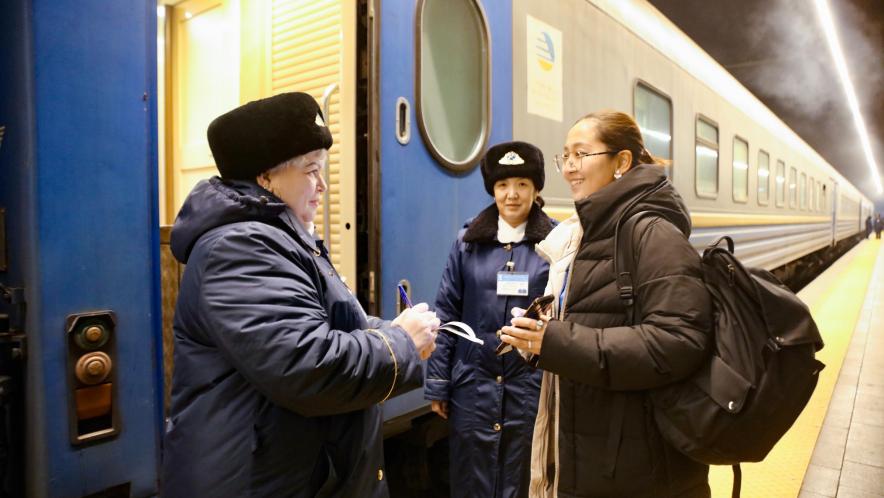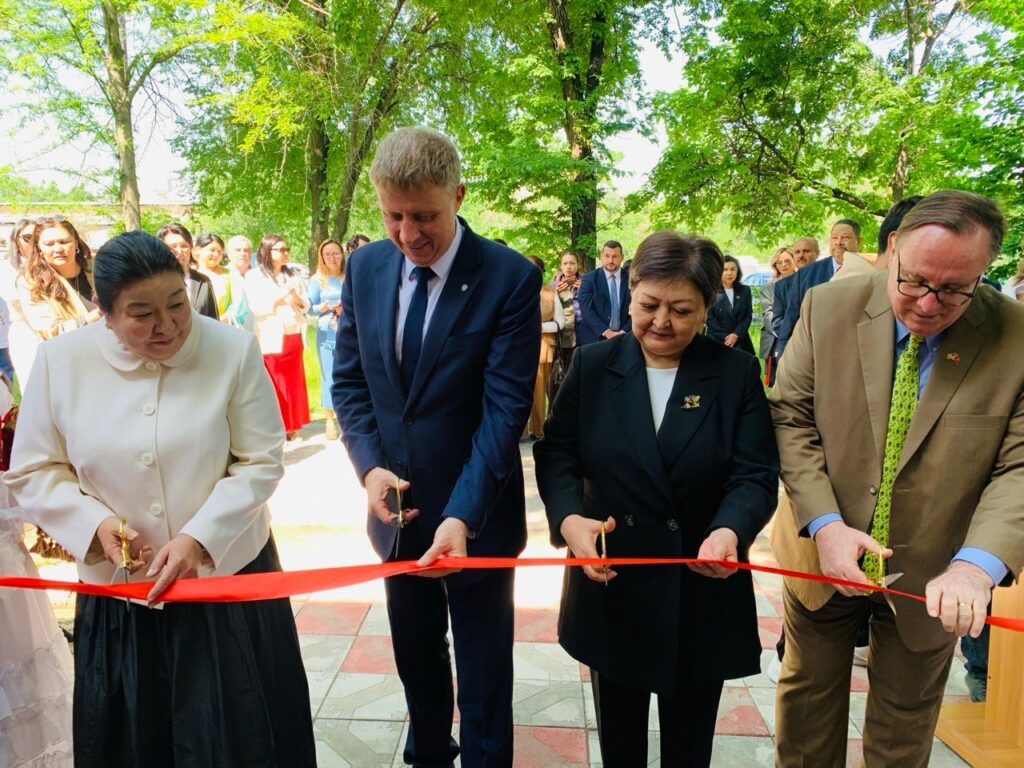Kazakhstani women have already had time to appreciate women-only cars in trains – an innovation that seemed unthinkable in the secular country a few years ago. However, the special carriages did not appear as an indulgence to traditionalist views.
Kazakhstani women now have a choice: they can ride in a regular carriage, or they can ride in a carriage that is practically closed to men – and demand for the latter service is increasing year by year.
In May, the statistics of Kazakhstan Temir Zholy (KTZ), a railroad monopoly, were published, which revealed that women twice as often choose women’s cars. Since 2021, more than 359,000 women have chosen this option, and since the beginning of 2024 alone, the service has been used by about 70,000 women, whereas in 2023, only 34,000 did so.
Today, women’s cars run in eight long-distance passenger trains, with only female conductors working in them. Male children up to seven-years-old are allowed, whilst men can go enter for a short period of time, but overnight stays are strictly prohibited.
The need to ensure the safety of women in trains began to be discussed after the scandal that broke out in the fall of 2018, when two conductors raped a female passenger on the high-speed train “Talgo” on the Astana-Aktobe route. This crime resonated widely, and led to loud demands for the authorities to take action. Conductors Zhetes Umbetaliev and Kolkanat Kurmaniyazov were found guilty of rape in July 2019 and were sentenced to just 2.3 and 2.5 years, respectively, whilst Kanat Almagambetov, first deputy chairman of KTZ, apologized on behalf of the company.
The first women-only cars were launched in October 2021. “This is being done primarily for the safety of women… If demand for the service increases, our company is ready to expand the geography of these routes. Apart from the female conductors, these carriages are no different from the others. They have the same pricing policy,” KTZ explained at the time.
The current routes were chosen because of their length, company representatives said. Kazakhstan is a large country and a trip from Almaty to Mangistau, for example, takes several days.
Ainagul Kasenova, a resident of Mangistau Oblast, travels to see relatives in Almaty several times a year, and for her, women’s cars have become a solution. “Now I try to buy tickets only in a separate car. You travel for a long time, so it’s much more comfortable if there are only women and children around. I used to encounter men talking to me, paying me unnecessary attention; it was unpleasant. When the news about the rape of a female passenger by conductors broke, my parents didn’t even want to let me go to Almaty. Now they let me go without any problem,” Kasenova told TCA.
According to her, both students and pensioners are comfortable in women’s carriages, especially those who have to travel often, which increases the risk. “The women’s carriage is always quiet, friendly atmosphere, without drinking and noise,” she added.
The demand for women’s carriages seems set to grow; Kazakhstani women are increasingly fearful of violence, and they have good reason to be. A study published by the Karaganda Medical University says that statistics on domestic crimes against women are steadily worsening.
The study is based on statistics from the Ministry of Justice and on a survey of 14,342 women of different ages (from 18 to 75) from 2019 to 2022, conducted in 14 regions of Kazakhstan. In particular, in 2022, the number of reports to the police for domestic violence amounted to more than 125,000. This is almost twice as many as in 2021 (63,447). The study showed that the main victims of domestic violence in Kazakhstan are women (77.9%), followed by children (17.52%).
The report states that in only 12.2% of cases is violence against women committed by strangers. In 87.8% of cases, the perpetrators are men with whom the victims are in a close relationship, almost all whom are husbands or partners of the victims (95-98% of cases). The data also show that most episodes of violence against women (98.2%) are caused by the alcohol intoxication of the assailant.
Although the percentage of unknown persons or casual acquaintances who have harmed a woman is so not high compared to domestic tyrants, the risk of stumbling upon a perpetrator in the transportation network increases many times over. Researchers note that Kazakhstan still has a high level of domestic violence, the main reasons for which include poverty, corruption, and low levels of education,
In the wake of the death of Saltanat Nukenova, which saw former Minister of National Economy Kuandyk Bishimbayev sentenced to 24 years in prison for the torture and murder of his common-law wife after a live-streamed trial, an open discussion on the issue of domestic violence has come to the fore in Kazakhstan. In April 2024, President Tokayev signed a new law onto the statute book in line with OECD standards which tightens the penalties for domestic violence and provides more help for survivors.










